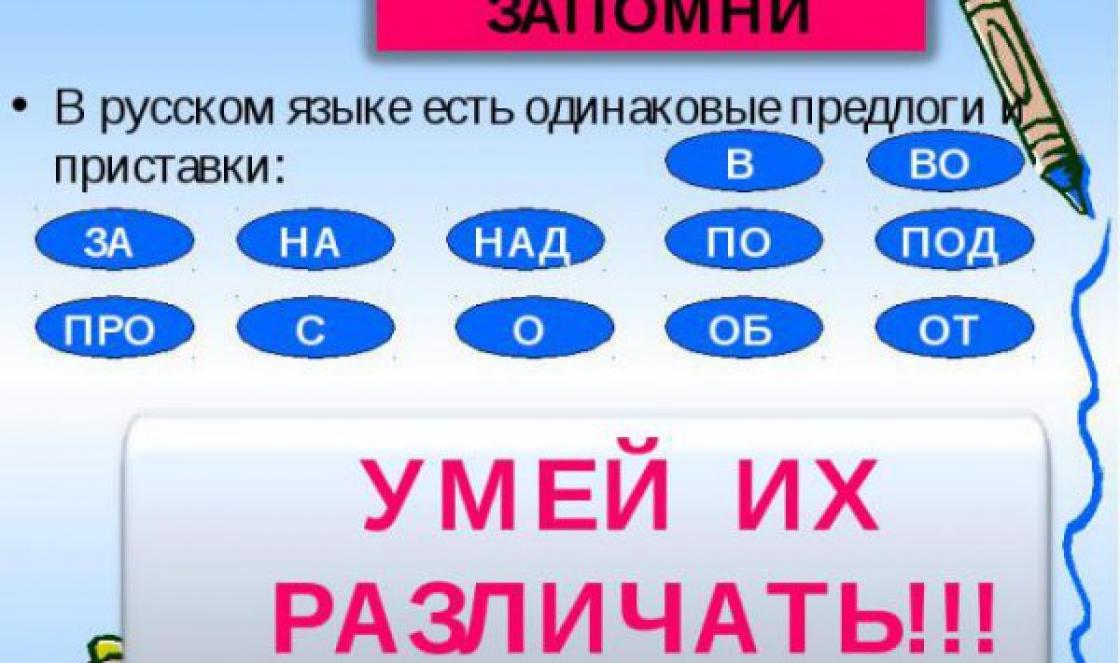There is a special socionic test by V. Gulenko, which will help you understand in a few minutes what type of personality you belong to. To pass the test, you do not need to have special knowledge of psychology. Enough to have a basic level of and also have patience. In total, there are 72 questions in the socionic type test. It is very important to answer the truth without thinking too much about each question.
Benefits of the test
The passage should not cause any difficulties. The author came up with a special system that allows you to quickly determine the socionic type of a person. The Gulenko test for socionic type helps to understand oneself. And this, in turn, helps to make true friends, find a soul mate, and also choose the right profession for yourself. Knowing your sociotype, you can learn to understand yourself and the people who surround you.
If you doubt yourself, then the questionnaire will help get rid of your doubts. Impressive people will be able to come to terms with themselves and understand what really bothers them. No matter what gnaws at you, Gulenko's socionic test will help you get rid of anxieties, understand yourself and the attitude of others towards you.
Socionic types
Gulenko believes that each person perceives the whole world that surrounds him differently. Some are guided by the sounds they hear on the street and at home. Others trust their eyesight more. Still others clearly feel the smells coming from people and the whole environment. There are also people who trust their intuition much more than logic. You cannot convince such a person with any words if intuition tells him the opposite. Of course, the vast majority are guided by logic. And there are people for whom the opinion of the people around them is very important. The socionic type test helps to understand what is most important for a person and what is secondary.
Socionics is a science that studies every personality, revealing the real aspirations of a person. People can be divided into introverts and extroverts. They are completely opposite. An introvert worries more and looks inward more often. He loves being alone more than being in a big crowd. If we talk about an extrovert, then everything is the other way around. He loves big and noisy companies. He takes great pleasure in it.
boolean type
People falling under this type do not trust their intuition, but are guided only by logical and balanced decisions. If a person strongly trusts his logic, then he can very rarely find himself in situations where they are trying to deceive him. Every decision is made deliberately and consistently. The logics are:
ethical type
They perfectly understand close people, they know how to sympathize. If this type does not communicate with anyone for a long time, then his life energy literally flows out of him. He needs companionship to feed. They are great at persuasion. If we talk about their appearance, they look quite charming. Ethics include:
Touch type
Such people are very fond of bright and positive impressions that they receive from their environment. They cannot stay in the same room alone for long. They need frequent changes of scenery. All senses are very important for them. They trust their eyes, their ears. They trust their sense of smell and their touch. Sensors.
Today, many people are interested in the science of socionics. Knowing your socionic type can be useful. Test compiled by V.V. Gulenko, will allow you to determine your socionic personality type in just a few minutes. The test includes 72 questions and is aimed at a diligent person. To pass the test, you need to arm yourself with minimal knowledge in the field of psychological science and patience. You need to try to answer as honestly as possible, without thinking about the questions for a long time. The test proposed by V.V. Gulenko, you will remember for a long time. He is very interesting and informative.
Benefits of taking the test
The test itself does not look like something special, it will be intuitive for everyone. The author of the test is Gulenko Viktor Vladimirovich. He developed a unique method for determining the socionic type of a person. Having understood himself, a person will be able to build productive relationships with others in the future, choose the right profession for himself. Knowing your own socionic type will allow you to expand your ideas about yourself and the world around you as a whole. People who doubt themselves should first pass the test to stop berating their own personality. With the help of the test, overly impressionable persons will be able to establish contact with their inner essence, to understand the situation that disturbs them. In any case, the questionnaire will help you find peace of mind, make the right decision, improve your own personality, change your attitude to many unforeseen and mentally traumatic cases.
The principle of dividing people into socionic types
V.V. Gulenko in his research insists that each person has his own leading direction in the perception of the world around him. Someone focuses on sounds, visual images, smells and colors. Others prefer to rely on intuition and no logical arguments will convince them. Most people reason in terms of logical thinking. For many, the opinion of society, a view from the outside, is extremely significant.
The principle of dividing people into socionic types underlies the science of socionics. The test allows you to identify the individuality of the person, her true aspirations and motivations for action. The test touches on the topics of introversion and extroversion of a person. If the experiences of the first are directed deep into one's own personality, then in the second they extend to the people around them. Depending on this feature, the same socionic type will acquire different meanings.
boolean type
People of this type make decisions, guided only by reason. They are not satisfied with premonitions that cannot be confirmed by anything. A person with highly developed logical thinking is less likely to get into situations where he can be deceived. He does not make decisions in a hurry, but prefers to act carefully.
A logical-sensory extrovert is a person who knows how to be as satisfied as possible with life. He does not talk about whether he lives his life to the fullest or whether it passes in vain. The main thing is that he knows how to enjoy life itself and spends it for the benefit of himself. Such a person loves to work, does not look for easy ways, appreciates others. As a rule, activity occupies a central place in his life. He is sometimes ready to sacrifice personal relationships just to direct the work in the right direction. This person can easily separate the main from the secondary. A logical-sensory extrovert rejoices at the prospect of communicating with people around him, likes to be in the spotlight.

The logical-sensory introvert is an extremely neat person who likes to complete all tasks on time. Such people are happy to plan and manage to do a lot of things in a day. Their internal self-organization will be the envy of any responsible executive who does not know how to distribute the load evenly. The logical-sensory introvert is somewhat self-absorbed, looks tired and gloomy. Those around him respect him for his tolerance and unquestioning fulfillment of the promise. Such a person knows how to keep his word, he does everything with impeccable accuracy and accuracy.
A logical-intuitive extrovert is a person who likes to think a lot, but at the same time he needs to express his thoughts to those who are nearby at the moment. He can't stand being alone. If such a person encounters misunderstanding or disapproval, he is often offended, withdraws into himself. The logical-intuitive extrovert wants to see the result of his efforts in everything. If something starts to happen not according to the expected scenario, he is frightened of the ongoing changes, starts to fuss and thereby spoils his mood.
A logical-intuitive introvert is a person of mood. It changes quite quickly for him. At the same time, he is balanced and calm. From the outside it may seem that nothing can piss him off. This type of personality likes to immerse himself in thoughts, it seems that he is constantly thinking about something. It is a habitual state for him to withdraw into himself so much that he does not notice the events taking place around him. The logical-intuitive introvert is calm, organized and responsible.
ethical type
The ethical personality type is distinguished by the ability to deeply understand the people around. Such a person cannot remain without communication for a long time, interaction with others allows him to receive vital energy. Ethical people have an excellent gift of persuasion. Outwardly, they look very charming and convincing.
The ethical-sensory extrovert is an active personality type who loves attention. It is extremely necessary for such a person that others notice his achievements and express their admiration in every possible way. To many, this personality type seems charming, hassle-free, and cheerful. He is really open to communication, knows how to appreciate friendly meetings and good company.
Ethical-sensory introvert - a person who is inclined to analyze their own and other people's feelings. People of this type make excellent psychologists, because they can easily understand the mood of the interlocutor, understand the causes of the situation that has arisen. They themselves rarely become hostages of their own emotions, because they know how to manage their feelings. The tendency to introspection acquires useful traits in them.
The ethical-intuitive extrovert is highly emotional. In a fit, he can say anything to those around him, which he will sincerely regret later. He cannot keep emotions to himself, has an explosive character, intolerance, cannot stand injustice.

An ethical-intuitive introvert values trust, strives to build honest, sincere relationships with people. Since he does not always manage to do this, he tends to get upset because of any unforeseen event. Mentally, he always looks for in those around him what he himself is ready to give them, recognizes an equivalent exchange. Condemns deceit and betrayal, does not change his own convictions.
Touch type
The sensory personality type is most focused on getting vivid impressions from outside world. A person of this type cannot stay in one space for a long time, he needs a change of impressions. Visual, auditory, olfactory images, tactile sensations are of great importance.
A sensory-logical extrovert is a type of person who is not alien to achieving goals at any cost. If this person has thought of something, he will achieve and will never back down. To many from the outside, he seems unnecessarily straightforward, persistent and uncompromising.
The sensory-logical introvert is well adapted to physical labor. Most often, he occupies a modest post and performs the activities of an executor. He does not like to take responsibility, to be the leader, to be responsible for something.
A sensory-ethical extrovert is a non-confrontational, gentle, rather easy-to-communicate person who appreciates sincere relationships. He, as a rule, has many friends, often happens in noisy companies, feels comfortable there. He loves travel and vivid impressions.
The sensory-ethical introvert is characterized by excessive silence and incredulity. It is difficult to make him laugh, to bring him out of a state of internal stupor. Others often consider him an eccentric who is not interested in anything.
intuitive type
The intuitive personality type is characterized by great self-absorption. Such people do not trust reason, are not based on logic, but turn inward and look for an answer. Decisions are made slowly, tend to go into deep thought. They have a well-developed intuition, they know how to feel the situation from the inside and draw conclusions based on their own emotions.
The intuitive-logical extrovert does not like routine and monotony. He wants to constantly experience new sensations, try the unknown, study some books. Such a person is very well-read, likes to communicate with like-minded people, needs a big company.
An intuitive-logical introvert is often a creative person, has his own quirks and whims. From the outside it seems to be a self-sufficient philosopher, endlessly talks about the meaning of life, is busy searching for his own individual path.
An intuitive-ethical extrovert is often endowed with the talent of an artist who loves to experiment. Appreciates society, but only if it does not prevent him from creating.
The intuitive-ethical introvert is a subtle dreamer. This is a person whose mood is unstable and changes like the weather. From joy, he can abruptly turn to tears and vice versa.
Thus, the test compiled by V.V. Gulenko, is a useful thing. The questionnaire will help you determine your goals for the future, find out your own character and aspirations.
Today we have prepared for you not just with butterflies, handbags and shoes. It's complicated and serious socionics test. Socionics is whole science about the relationship between individuals, teaching about. Socionics relies on the so-called "information metabolism", that is, there are different options for information interaction between subjects with different sociotypes. Difficult? Then, in plain language, we can say: Olya hates Vika, because Olya always does everything on time, and Vika puts everything off until tomorrow and is constantly late; but Andrey and Vika could develop a relationship, because he himself sometimes likes to score on everything and go to drink. Why do we need a socionic test? People who are no longer new to socionics determine the sociotype of the interlocutor by eye and can already understand for themselves whether they need such an acquaintance or not. Large companies sometimes hire socionics and put them in charge of the personnel department so that they hire only a certain socionic type - this avoids many conflicts. Other companies seat sociotypes in different offices so that there is no “friction”. On the one hand, a socionics test can solve the problem of conflicts in a team. But on the other hand, seating people who think alike at the same table is also a risk. Yes, and many leaders are skeptical about this and do not delve into socionics. In short, this is a personal matter for everyone, but our task is different. If you still want to know your sociotype (which, by the way, there are 16) - take this socionics test. Just choose the statements that suit you best, then follow the arrows and you will get your socionic type, encrypted in three letters. To make it clearer for users, we have indicated how a socionic type is deciphered in socionics, and we have given a description of each of the types. That's all! A few minutes of time and socionics will show who is who.


















2002/09/15 : " " appears in the Russian section - search for socionics by city. Their portraits are placed in the city sections, short biographies, images of books.
2002/08/15 : The English section appears. Type descriptions translated, translation edited by L. Kamensky. In addition, at first, J. Bolden took part in editing the section, then contact with him was lost.
2002/07/15 : the German section appears (type descriptions compiled and translated by ).
2002/06/01-30 : Sections appear on the site in Esperanto (translated, edited by A. Galkin), Estonian (translated by B. Pushkin) and French.
2002/05/22 : The site was born! So far, it has only one section - Russian, although sections in other languages are already planned:

2003
2004/09/07 : a new monograph and G. Kukhlova.
2004/09/04 : major changes and additions have been made to and .
2004/09/01 : Multivariate Test (MT) testing discontinued.
2004/08/31 : major additions : added description of 8 functions of information exchange, Model A, additions made to type descriptions.
2004/07/28 : Testing conditions for the Multifactorial Test (MT) have been changed. The page dedicated to type definition methods has been updated.
2004/07/24 : we are publishing a review article on our Multivariate Test (MT), which has been taken by about 1000 participants since last year:
Attention - before reading the article, do not forget to download and install.
September 29, 2005: the structure of the site has been updated - for ease of navigation, the existing sections have been reorganized, several new ones have been added. Now there are two submenus in the top menu: navigation through the sections of the site and navigation within a specific section.
A. Solyony. Yang/Yin dichotomy and Jungian dichotomy.
A. Bukalov, O. Karpenko, G. Chikirisova. .
August 9, 2005: the article "" has been substantially corrected and supplemented. A table and figures have also been added.
And again the old criticism of socionics.
May 4, 2005: instead of the retired "Socionic Newspaper", the mailing list "Psychodiagnostics, Jung's types and socionics" was created.
April 17, 2005: a conference on the topic "Prospects for Socionics as a Science" was held in Moscow. . The authors of the site could not attend it, but sent their article to the organizing committee: Lytova M.F., Lytov D.A. (considerations and suggestions in connection with the creation of the Scientific Socionic Society).
April 10, 2005: a thematic index appeared on the main page of the site. The Library added pages and .
March 30, 2005: A copy of our site has been published on a CD - supplement to the 3rd issue of the PC World magazine.
November 12, 2006: a month and a half ago, "due to a combination of reasons," we considered it inappropriate to continue cooperation with the site www.socionics.spb.ru and offered its owner (V. Mironov) to mutually cleanse themselves of each other's traces. Despite several reminders, our articles (in particular, psychological biographies of some scientists, an article about the MT test, etc.) have not been deleted so far. On the one hand, we are glad that we are valued and respected without counting on reciprocity, but on the other hand, we want to wish V. Mironov to learn how to maintain the traffic statistics of his site through legal agreements.
Acceptance and processing of completed MT test forms has been completely stopped.
Added: – many new articles, –
June 17 – 30, 2006: Our site was experiencing temporary difficulties and was unavailable. Now it works again. By the address
This page provides a test with which you can determine your(or at least narrow the range of suspicions to a few types). When answering his questions (there are twenty of them in total), you will need to indicate whether you agree with the proposed statements. Try to give unambiguous answers (“Yes” and “No”) only when you are sure of them. If some questions cause you difficulty, do not be afraid to answer “I don’t know” - such an answer will not do harm, unlike an uncertain but incorrect answer.
The current version of the psychosophy test determines the typewith fairly high accuracy, butstill, you should not completely rely on the very first result according to the points: even with one wrong answer, your real type will most likely move to second place (and share it with several more types). Therefore, when analyzing the results, it is recommended to look not only at the types that scored maximum score, but also on the next ones after them. In a good way, the test result is from one to six types (more than this number already indicates a low reliability of the results in principle). I recommend remembering their names and reading the corresponding ones. So you can further narrow the circle of suspicions down to one type.
If you want reliably determine your psychosophic type(with quotes and detailed explanations), you can sign up for typing with us. All information about this can be found at the link..
Let me remind you that in psychosophy abouttwenty-four so-called PY-types are written (from the abbreviation of the second name of the typology - “psyche-yoga”).As in socionics, in psychosophy the type is represented by a combination of aspects and functions that perceive them. Aspects are responsible for their respective states: Physics - for needs, Will - for desires, Emotion - for emotions and Logic - for opinions. As a result, the type is written as the order in which these aspects appear at function positions. For example, LVFE (also called “ Lao Tzu”) is a type that has First Logic, Second Will, Third Physics and Fourth Emotion. It is important to note that a type cannot have two identical functions at the same time (for example, 1L and 1E) or not have one of the aspects. So, if two functions with the same aspect suit you at the same time (for example, First and Second Physics), this does not mean that your type combines them both at once. In this case, you just need to delve into the theory and better understand yourself.
ATTENTION: in the course of manual analysis of the answers of respondents who passed this version of the test, we found 7 questions that adversely affect the accuracy of the results. Therefore, at the moment, the points for the answers to them are excluded from the calculation of the results. We will definitely continue working on the test and will soon find a replacement for the rejected questions. Read about updates in





